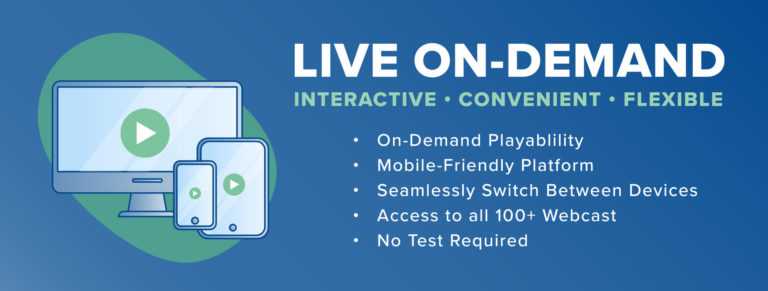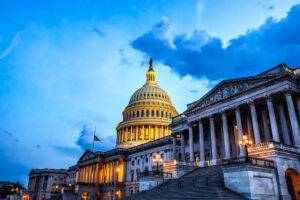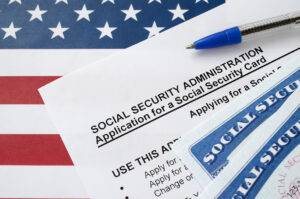
Article at a Glance:
- SBA and Treasury continue to address questions at their plodding pace
- Many banks continue to kick the can down the road while they wait for potential changes from the SBA
- Owner-employees with less than a 5% stake in a C or S Corp aren’t subject to the owner-employee compensation rule
- The household expenses of a home-based business are not eligible for forgiveness
- Rent payments to a related party are eligible for loan forgiveness but much depends on the Covered Period
If it seems like there is a constant stream of information coming from the SBA and Treasury on the Paycheck Protection Program (PPP) loan forgiveness, you’re right. SBA and Treasury are plugging (plodding) away at clarifications, explanations, and in this case, answers to nagging questions on expenses that qualify for forgiveness. Be assured; there will be more explanations, answers, and maybe even some legislation affecting forgiveness. Here’s what The Bank of the West just sent its PPP loan customers.
We want to keep you updated on PPP loan forgiveness and help you prepare for the application process with us. As we shared with you last week, we continue to hold off opening our PPP loan forgiveness portal while we await potential changes from the SBA that may streamline the PPP loan forgiveness process. Rest assured, we will send you an email invitation to apply for PPP loan forgiveness when we’re ready.
Still plenty of time to apply
As we’ve said in previous emails, your business has up to 24 weeks to spend PPP loan funds (or you are still allowed to use the original 8-week covered period). Also, the deferral period for payments of principal and interest on any part of PPP loans not forgiven has been extended to 10 months after the end of the 8- or 24-week covered period, so there is plenty of time to apply for PPP loan forgiveness.
SBA has released answers to three more questions on PPP loan forgiveness (SBA-2020-0044):
- Are any individuals with an ownership stake in a PPP borrower exempt from the application of the PPP owner-employee compensation rule when determining the amount of their compensation that is eligible for loan forgiveness?
Yes, owner-employees with less than a 5% ownership stake in a C- or S Corporation are not subject to the owner-employee compensation rule. This is a change from the June 26, 2020, interim final rule where there was no exception in the rule based on the owner-employee’s percentage of ownership.
Example. Frey owns 10% of the business. Based on a 24-week covered period, his compensation is capped at $20,833 (2.5/12 of $100,000 annual compensation). Catherine owns 2% of the business. Based on a 24-week covered period, her compensation is capped at $46,154 (24/52 of $100,000 annual compensation limit).
2. Are amounts attributable to the business operation of a tenant or sub-tenant of the PPP borrower or, in the context of home-based businesses, household expenses, eligible for forgiveness?
No, the amount of loan forgiveness requested for nonpayroll costs may not include any amount attributable to the business operation of a tenant or sub-tenant of the PPP borrower or, for home-based businesses, household expenses. This exemption is intended to cover owner-employees who have no meaningful ability to influence decisions over how loan proceeds are allocated.
Example. A borrower has a mortgage on an office building it operates out of, and it leases out a portion of the space to other businesses. The part of mortgage interest that is eligible for loan forgiveness is limited to the percent share of the fair market value of the space that is not leased out to other businesses.
Example. A borrower works out of his or her home. When determining the amount of nonpayroll costs that are eligible for loan forgiveness, the borrower may include only the share of covered expenses that were deductible on the borrower’s 2019 tax filings, or if a new business, the borrower’s expected 2020 tax filings.
3. Are rent payments to a related party eligible for loan forgiveness?
Yes, as long as (1) the amount of loan forgiveness requested for rent or lease payments to a related party is no more than the amount of mortgage interest owed on the property during the Covered Period that is attributable to the space being rented by the business, and (2) the lease and the mortgage were entered into prior to Feb. 15, 2020.
While rent or lease payments to a related party may be eligible for forgiveness, mortgage interest payments to a related party are not eligible for forgiveness. PPP loans are intended to help businesses cover certain nonpayroll obligations that are owed to third parties, not payments to a business’s owner that occur because of how the company is structured.
Note. According to the SBA, any ownership in common between the business and the property owner is a “related party” for these purposes.
PPP UPDATES:
Western CPE keeps abreast of the latest PPP updates. Vern Hoven, CPA, MT, and Sharon Kreider, CPA, tackle common PPP Loan Forgiveness questions in a new 6-part series. Watch Episode 6 Now.
Recent Stories
Next Up...
- |
- TaxByte
- |
- TaxByte






